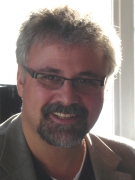Our
students became official correspondents of the FIFA World Cup for
the University of T�bingen.
Read about this project in the local newspaper:
"Gaststudenten der Uni berichten aus WM-Land"
***
The final
"South
Africa - University of T�bingen" - Homepage with the
latest reportings, impressions
and pictures of the FIFA World Cup in South
Africa.
***
Read
the article "Von
der Südhalbkugel an den Neckar"
in the university paper "T�binger Universit�ts Nachrichten"
(Nr. 149, 15.03.2010)
***
The T�bingen
South Africa Program at the 'Fair
Trade' exhibition in Stuttgart (15.04.2010 - 18.04.2010)
***
A warm welcome
to Eberhard Karls Universit�t T�bingen!
Since 2000 we are glad
to host this 4-week seminar that is designed to give young South
Africans a taste of German culture and business life. You can
feel privileged for having been chosen by your home universities
and technikons for participation in this most successful immersion
program.
Besides the fact that you find yourself learning about
Germany at an internationally most renowned research university
in this country, during the upcoming 4 weeks you will also be
living in a lovely and picturesque town, where student life goes
along very well in midst a stunning architecture with medieval
facades, with crooked streets, and countless romantic sights.
I am confident that in the near future you will look back at your
T�bingen experience as a life-changing eye-opener and as one of
the most exciting experiences in your young lives. Among the various
activities of Eberhard Karls Universit�t T�bingen relating to
South Africa the T�bingen South Africa Program is certainly the
most ambitious one, which in the meantime well over 220 students
have benefited from. Our enthusiastic and experienced team has
put together an exciting schedule for you. Coming from the southern
to the northern hemisphere, from a warm summer to rather chilly
winter temperatures you will find that things are quite different
here in Germany, and these differences do not only apply to the
climate and food.
The making of this program would not have been
possible without the input from various organizations that need
to be acclaimed in this context. The idea for the T�bingen South
Africa Seminar is based on the fact that Gauteng, Kwa-Zulu-Natal,
Eastern Cape and Western Cape are all partner provinces of the
State of Baden-W�rttemberg, and T�bingen is located in the heart
of this German region. Therefore a first big "Thank you" goes
to the Ministry of Science, Research and the Arts of Baden-W�rttemberg
that provides the bulk of funds for conducting this program. Then,
our gratitude goes to our friends at the University of Stellenbosch
who have taken the leadership in South Africa and done all the
preparatory coordination work in the run-up to your departure.
Also, we would like to thank the following institutions for their
financial support by fully sponsoring one participant: Stellenbosch
University, Cape Peninsula University, Nelson Mandela Metropolitan
University, Tshwane University of Technology, University of the
Western Cape, University of the Witwatersrand; as well as institutions
sponsoring the flight of one participant: Durban University of
Technology, University of Zululand, University of the Witwatersrand,
North Western University and Rhodes University.
So, welcome again
to an exciting month in a true UniverCity and I am positive that
you will enjoy and profit from "T�bingen 2010" as much as your
predecessors. Have a great time in T�bingen!
With
my best wishes,

Wolfgang Mekle
Director,
International Relations
